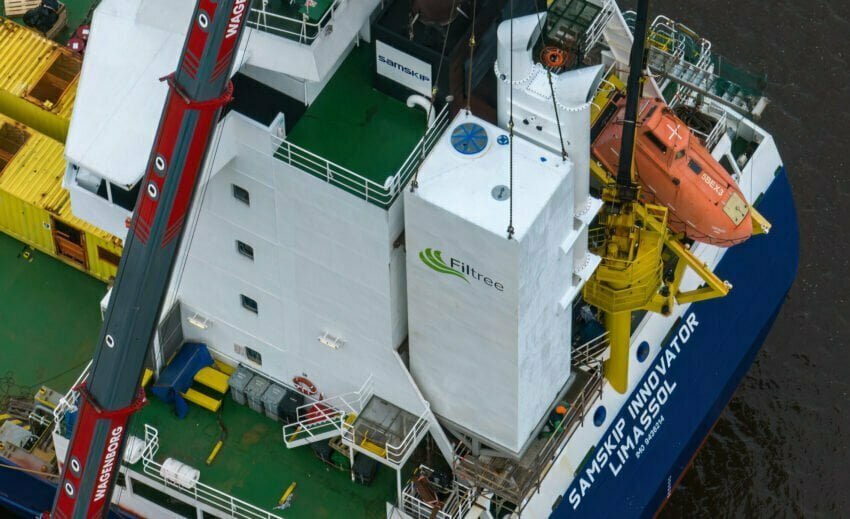 (Credit: Samskip)
(Credit: Samskip)Samskip, a prominent green shipping organization, has initiated a new project aimed at reducing CO2 emissions from its vessels. The Carbon Capture and Utilization system developed by Samskip captures 30% of the CO2 emissions produced by combustion engines in real time. Then, the system stores the emissions in portable batteries, thus offering an environmentally sustainable solution for the shipping industry.
The portable batteries can be delivered to clients, such as agricultural businesses and greenhouses, which require CO2 to promote growth in their products. By providing these clients with captured CO2, the need for gas-powered machinery can be eliminated, resulting in a reduction in natural gas usage.
Earlier this year, EcoVadis awarded Samskip a Gold Medal based on its performance in Environment, Labor & Human Rights, Ethics, and Sustainable Procurement. Further, the company ranks among the top 2% of its industry peers in all these areas and continues to seek innovative ways to pioneer sustainable solutions and services.
In addition to the Carbon Capture and Utilization system, Samskip has also installed its first CO2 exhaust gas cleaning system on one of its shortsea vessels, demonstrating its commitment to sustainable solutions. This installation was carried out while the vessel was docked at the shipyard Royal Niestern Sander.
The International Maritime Organization (IMO) requires ship owners to report Carbon Intensity Scores annually, with ships receiving grades based on their results. The IMO developed the Carbon Intensity Indicator (CII) rating system, which ranges from A (best) to E (worst). All cargo, RoPax, and cruise vessels with more than 5,000 gross tonnage trading internationally are subject to these regulations. Ships that receive a D score for three consecutive years or an E score once are prohibited from trading until a corrective plan is in place.
According to a report from Clarkson Research, nearly 12% of container vessels could score in the E range. The shipping industry is responsible for approximately 940 million metric tons of carbon emissions per year, which accounts for around 2.5% of the world's total emissions, as reported by UK Research and Innovation.